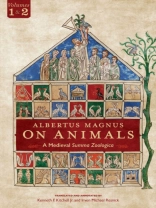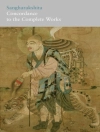Albertus Magnus has long been recognized as one of the greatest minds of the Middle Ages; his contemporaries conferred upon him the title Doctor Universalis. An epitaph at his tomb described him as prince among philosophers, greater than Plato, and hardly inferior to King Solomon in wisdom. In 1941, Pope Pius XII named Albertus Magnus patron saint of scientists.In his work De animalibus, Albert integrated the vast amount of information on nature that had come down to him in previo...
Albertus Magnus has long been recognized as one of the greatest minds of the Middle Ages; his contemporaries conferred upon him the title Doctor Universalis. An epitaph at his tomb described him as prince among philosophers, greater than Plato, and hardly inferior to King Solomon in wisdom. In 1941, Pope Pius XII named Albertus Magnus patron saint of scientists.In his work De animalibus, Albert integrated the vast amount of information on nature that had come down to him in previous centuries: the exposition of Michael Scotus s translation from the Arabic of Aristotle s books on the natural world (Books 1 19), Albert s own revisions to Aristotle s teachings (Books 20 21), and a dictionary of animals appropriated largely from the De natura rerum of Thomas of Cantimpre (Books 22 26). Albert s comprehensive treatise on living things was acknowledged as the reputable authority in biology for almost five hundred years.In this translated and annotated edition, Kenneth F. Kitchell Jr. and Irven Michael Resnick illuminate the importance of this work, allowing Albert s magnum opus to be better understood and more widely appreciated than ever before. Broken into two volumes (Books 1 10 and 11 26), Albertus Magnus On Animals is a veritable medieval scientific encyclopedia, ranging in topics from medicine, embryology, and comparative anatomy to women, hunting and everyday life, commerce, and much more an essential work for historians, medievalists, scientists, and philosophers alike.












